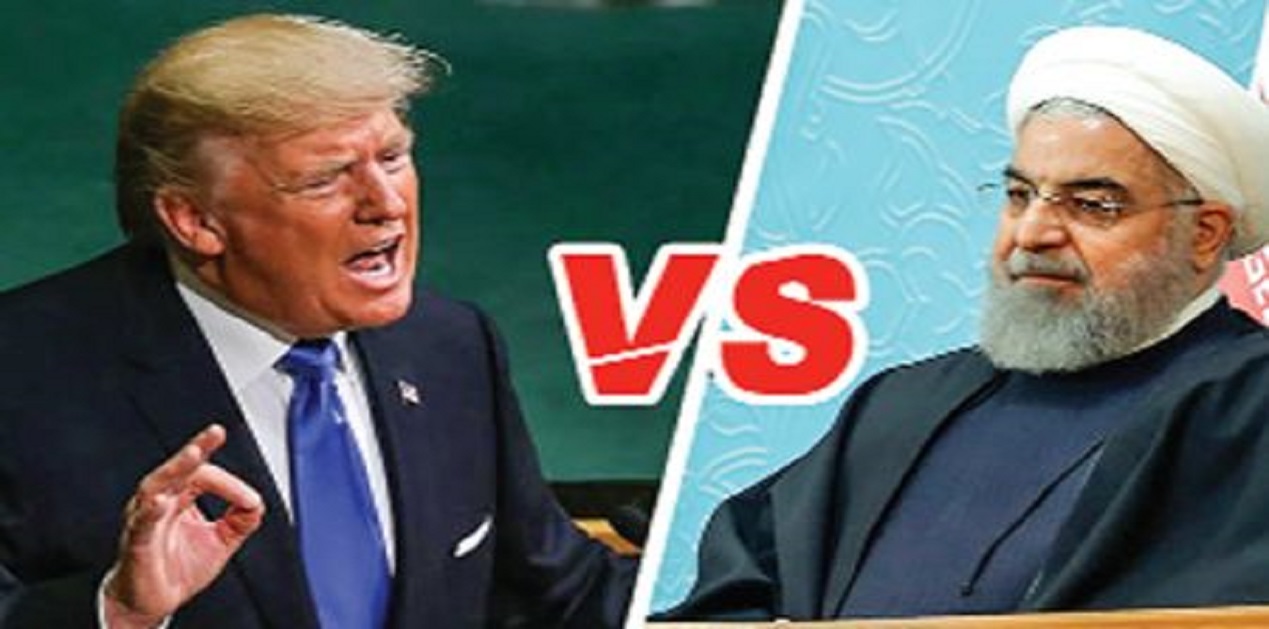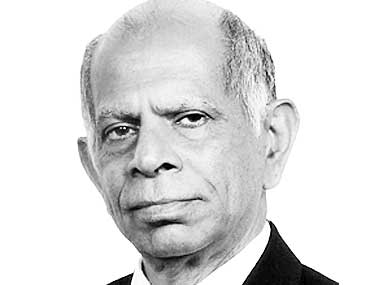The world is witnessing with increasing alarm the escalating tension in West Asia. We do not know whether there will be a war. But we have reasons to fear that hostilities might break out if there is no de-escalation. We do not see, as yet, any signs of a serious and credible attempt to de-escalate on the part of the contestants or others.
Why are we where we are?
Under President Obama a nuclear deal was signed with Iran, technically known as JCPOA (Joint Comprehensive Plan of Action), in 2015. Iran agreed to keep no more than 300 kg of uranium, enriched to only 3.67 percent whereas to make a bomb enrichment at 90 percent or above is necessary. It also agreed to rather intrusive inspections by IAEA (International Atomic Energy Agency) based in Vienna.
It should be borne in mind that in 2007 the CIA had determined that Iran had ceased to pursue the bomb-making project in 2003. It was Israeli propaganda that had successfully sold the story that Iran was six months or two months away from making a bomb. Yet, the fact remains that Iran under President Ahmadinejad (2005-2013) did start acquiring the capability to produce the fissile material for a bomb. In short, so long as Iran adhered to the JCPOA, there was no question its making a bomb.
Candidate Donald Trump had promised to walk out of the JCPOA and President Trump did that on 8 May 2018. He also imposed economic sanctions on Iran to prevent it from exporting oil, its principal export, to start an economic war. His reasoning, that the JCPOA was not a good enough mechanism to prevent Iran from making a bomb, was not convincing, but he got the satisfaction of ruining a key achievement of Obama as well as pleasing Israel and Saudi Arabia who had stoutly opposed the JCPOA. Additionally, Trump had correctly calculated that if tension mounts in West Asia, more arms could be sold to the region.
Iran did not follow Trump’s example and walk out of the deal. It asked the European co-signatories - Germany, United Kingdom, and France (EU 3) - to arrange for a payment mechanism to buy oil from it. Initially, the EU3 promised to do that and criticized Trump for walking out. In January 2019, EU announced the formation of Instrument In Support of Trade Exchanges (INSTEX), an instrument that has not worked as expected. Iran’s oil export has fallen from 3.83 mbd (million barrels a day) in 2017 to 1.5 mbd. According to the Paris-based International Energy Agency, Iran’s export might fall to 0.7 mbd in a few months, further crippling its economy.
Washington has taken measures to raise tension. It declared the IRGC (Iranian Revolutionary Guard Corps) a ‘terrorist’ outfit; Tehran paid back by declaring the US Fifth Fleet based in Bahrain as a ‘terrorist’ outfit. In May 2019, Washington sent its aircraft carrier strike group Abraham Lincoln with four B-52 nuclear-capable bombers to the Gulf and 1500 troops too. The latest is that the Pentagon is considering sending 6,000 troops more. The reason advanced for these escalatory moves is that Iran is a threat to peaceful movement of oil tankers; four tankers were attacked off the coast of the Emirate of Fujairah, north of the Straits of Hormuz, on 12 May and two tankers more on 13 June near the south of the Straits. Through these Straits pass oil to the tune of 17.2 mbd, the global daily consumption being 100 mbd. The Straits situated between Iran and Oman, 3 km long and 33 km wide at its widest, is extremely vulnerable to attacks to disrupt tanker movement.
We do not know who has carried out the attacks on oil tankers. The US has claimed that it has intelligence evidence that Iran carried out the attacks on 13th June. Since the Japanese Prime Minister Abe was in Teheran on the 13th,it is difficult to believe that Iran would have targeted a Japanese tanker. The owner of the tanker has denied that any bomb was placed on his tanker. The United Kingdom has publicly stated that it is ‘almost’ certain that Iran is responsible. Jeremy Corbin, the Labour leader, has categorically stated that he does not endorse his government’s position. The European Union (EU) has called for an impartial investigation before concluding who is to blame. So has the UN Secretary General. So far Washington has not shown interest in any impartial enquiry.
Is Iran on a weak wicket?
Yes, indeed. Iran has a strong moral and legal case, but Trump has more or less succeeded in pushing Iran into a corner. INSTEX has not worked and EU might not like to offend Washington by making it work. We all should recognize the ‘unipolarity’ that still operates in the realm of international finance and trade. Obviously, there is need to get rid of this ‘unipolarity’. As of now, there is no sign of any action on that score.
Iran is on a weak wicket for another reason. Its assumption that by threatening to exceed the cap on the amount of uranium (300 kg) or the amount of heavy water (130 tons) it can hold, it will force the EU3 to strengthen INSTEX, is questionable. There is no EU leader who wants to take on President Trump. If EU3 does not act as Iran hopes after Iran has crossed the limits on uranium and heavy water, Iran will be compelled to violate other restrictions and then Trump will argue that Iran was on its way to make the bomb and the EU3 will have no option but to support him. In short, by weakening Iran’s economy, Trump has the upper hand.
If Iran agrees to talk to the signatories of the JCPOA, Trump will insist on curbs on Iran’s missile programme and its support to Hezbollah and Hamas. No government in Iran can survive such humiliation.
What will be the possible scenarios?
First, Iran agrees to talk to revise the JCPOA. This should not be ruled out, but this is rather unlikely as of now.
Second, the crisis aggravates and the hardliners in Tehran get the upper hand. A new regime closes the Straits of Hormuz and oil prices move up. Trump orders military strikes and the region goes up in flames. Not to be ruled out, but rather unlikely as of now.
Third, under a new regime, Iran violates the JCPOA and IAEA is expelled, and EU joins US in imposing sanctions on Iran. An economically crippled Iran goes ahead to make atomic bombs at the cost of great misery to its people. China and Russia might blame the US and not impose sanctions on Iran. Ultimately, Iran emerges as a nuclear weapon power if US and Israel fail to reduce to smithereens Iran’s nuclear facilities.
In conclusion, it is in the interest of India and the rest of the world that the crisis is resolved through diplomacy. The cost of higher oil prices is painfully obvious. Even substituting Iranian oil has a cost to it. The Ministry of External Affairs must be seized with the matter.
(The paper is the author’s individual scholastic articulation. The author certifies that the article/paper is original in content, unpublished and it has not been submitted for publication/web upload elsewhere, and that the facts and figures quoted are duly referenced, as needed, and are believed to be correct). (The paper does not necessarily represent the organisational stance... More >>
Image Source: https://sachkahoon.com/wp-content/uploads/2019/05/Untitled-10-7-450x270.jpg











Post new comment